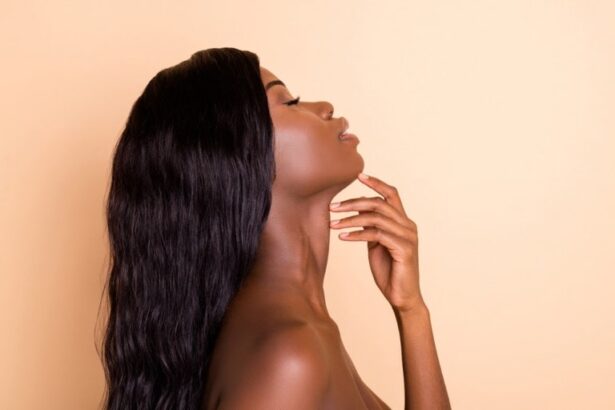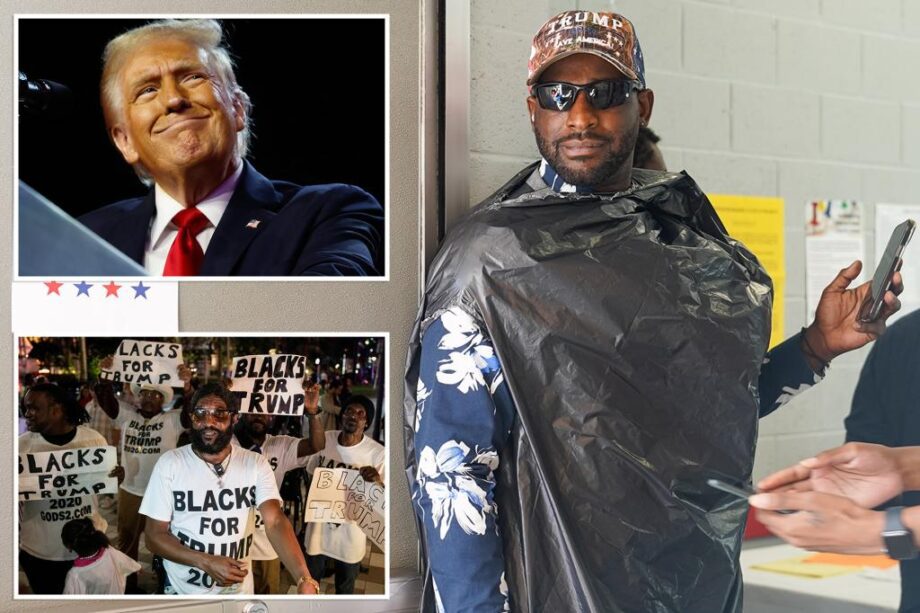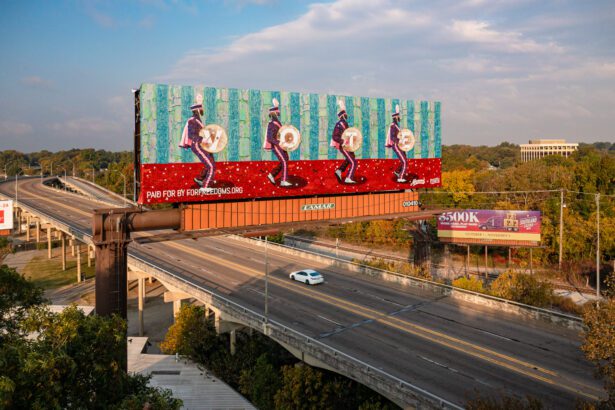President-elect Donald Trump doubled his support among black men from last cycle while likely amassing the largest percentage of nonwhite voters for a Republican presidential hopeful since Richard Nixon.
Black men opted for Trump by about 21%, while black women backed him at 7%, with 12% of black supporters voting for him overall — up from 8% eight years prior, according to Edison Research.
For black men who shifted to Trump, the change was the culmination of growing dismay over Democrats’ attitude toward them, a rebellion against being pigeon-holed politically due to their race, and broadly warming up to GOP policies.
There was also a lingering sense that Trump was someone with whom they could relate.
“By the president getting that mug shot, he was able to see through a black man’s eyes,” Duke Tanner, a former undefeated professional boxer whom Trump granted clemency, told The Post.
“He was able to really see through a black man’s eyes at what we go through and [have] been going through for years.”
Tanner was arrested at the age of 24 for a drug conspiracy for which he was later convicted and sentenced to life behind bars, a stint that kept him away from his son. He has since penned a book on his journey.
“My son didn’t want to learn how to ride a bike because I wasn’t there to teach him. He wanted me to teach him how to ride a bike — not his uncle, not his grandpa,” Tanner recalled.
But just over four years ago, Trump intervened and “saved the day,” Tanner recounted. He also credited Trump for helping others in a similar situation by signing the First Step Act, which was aimed at reducing certain federal sentences and reforming the prison system.
Prior to Trump’s presidency, Tanner surmised that he probably would’ve identified more with the Democrats, but he was impressed with the soon-to-be 47th president’s policies.
“As a black person, no matter what, you [were] taught from [when you were] a kid that you were a Democrat,” he reflected.
If Vice President Kamala Harris had prevailed in the election, she would’ve been the first black female president to win the White House and the second black president overall.
She had largely steered clear of harping excessively on identity politics and carefully navigated questions about polling data suggesting that she was hemorrhaging support from black males. She also rolled out a suite of policies aimed at courting them, including legalizing marijuana.
“It’s very important to not operate from the assumption that black men are in anybody’s pocket,” Harris said during a National Association of Black Journalists panel in September.
That sentiment about black voters being expected to be Democrats is something that hits home with a lot of black conservatives.
“I grew up being told that if you’re black you’re a Democrat,” former NFL player Jack Brewer told The Post. “I was told that only rich people and racists vote Republican.”
“When I supported Trump back in 2016, I lost friends. I had family members stop talking to me. But now these same black people are calling me in 2024 saying, you know, I think you were on to something.”
Brewer, who helms the eponymous Jack Brewer Foundation, also posited that there has been a growing segment of “black men who reject the soft liberalism of figures like Barack and Michelle Obama, Kamala Harris and other left-leaning Democrats who aim to feminize our children and our culture.”
The shift among black men coincides with a broader gender gap across racial lines.
Harris scored 53% of women compared to 45% who went for Trump, per Edison Research. Meanwhile, the president-elect nabbed 55% of men compared to Harris’ 42%.
Trump also won a majority of Latino male voters (54%), per the poll.
“When it came to our children, black men went into protection mode. We had daughters, and we weren’t about to let men compete against them in sports or enter their restrooms. God called us to protect our families, and that’s exactly what we did,” former NFL player Frank Murphy told The Post.
“Black men stepped back from the noise, studied the policies, and chose to stand up for our women and daughters by voting for Trump,” Murphy, who also chairs Athletes for America at the American First Policy Institute, added.
On the campaign trail, former President Barack Obama was caught on video grousing about Harris’ shortcomings among the “brothers” and pondered if they “just aren’t feeling the idea of having a woman as president.”
His wife, former first lady Michelle Obama, had also begged men to “take our lives seriously.”
“I believe that they were trying to use the guilt trip, and they wanted to pull the race card. But this isn’t about that,” Tanner said of the Obamas’ comments.
T.W. Shannon, the 2024 campaign adviser to Black Men for Trump and Oklahoma’s first African-American speaker of the House, assessed that black voters were a critical pillar of the so-called “Blue Wall” states of Michigan, Pennsylvania and Wisconsin that went for Trump on Tuesday.
“Donald Trump alone gets the credit for going after the black vote like no other Republican. He was honest, offered a real plan, had a record of success his first term, and most importantly was authentic with the community — none of which Kamala could deliver on,” Shannon explained.
“In contrast, Harris showed up at black churches in typical Democrat fashion two weeks before the election, and the only plan she had was abortion on demand for black women and weed shops for black men.”
As the election postmortems roll in, prominent Democrats are trying to figure out how they lost ground with minority male voters.
“I am going to state the obvious here: vilifying voters of color as white supremacists will not attract them back to the Democratic Party. It will drive them further into Trump’s camp,” Rep. Ritchie Torres (D-NY) wrote on X.
“The purpose of politics is not to repel but to attract. Condescension is the most powerful repellant in politics. Voters viscerally resent condescension and will punish you for it at the ballot box.”
During the Obama era, some Democratic operatives had felt bullish that demographic destiny could help ensure long-term political dominance as the party seems to have a toehold on minority voters.
Now Republicans are hoping they can continue making inroads with working-class minority voters.




